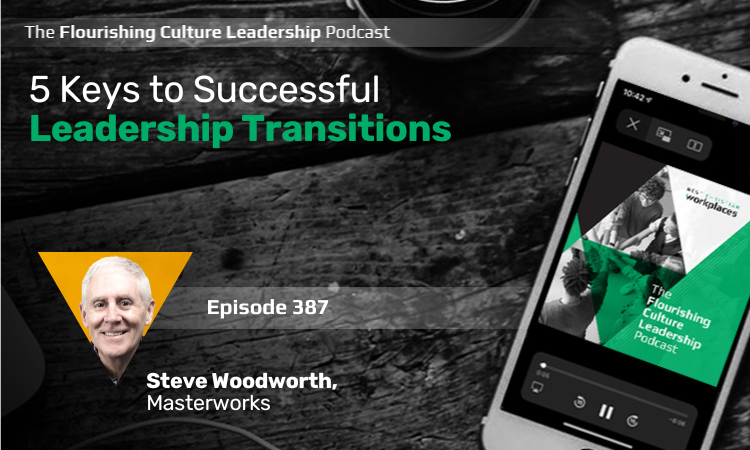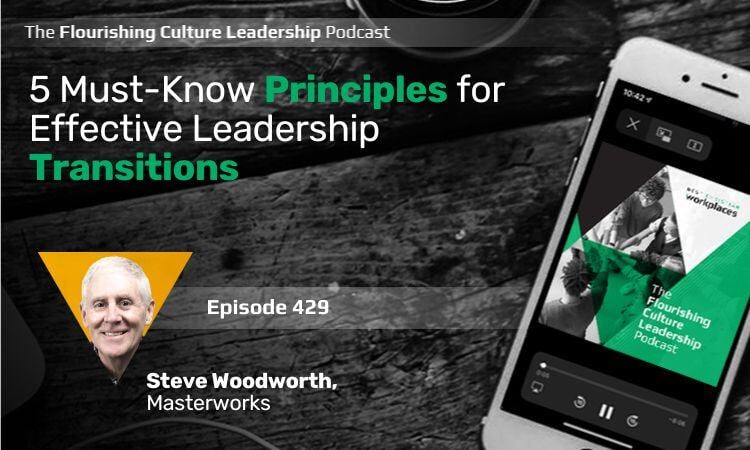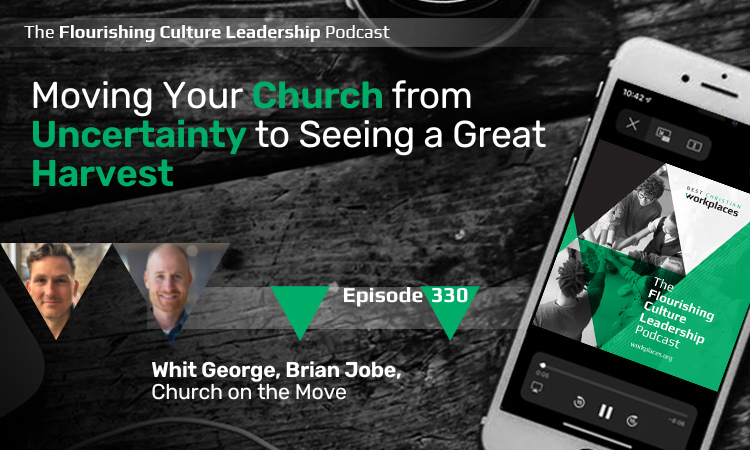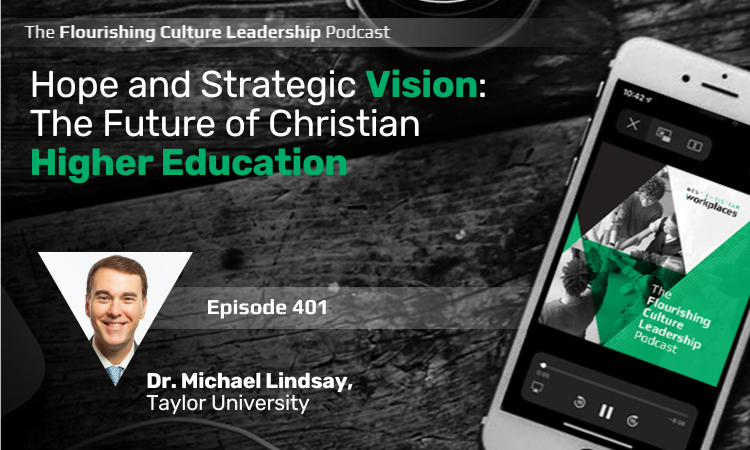Steve Woodworth, CEO of Masterworks, joins us to discuss the crucial differences between successful and disastrous leadership transitions. Steve is an expert in ministry succession and he shares key strategies for seamless transitions and fostering a culture of transparency and communication.
Listen to the Audio
Listen in Apple Podcasts | Listen in Spotify | Listen in Google Podcasts
In this episode:
Importance of Leadership Succession Planning:
- Steve emphasizes the inevitability of leadership transitions, urging leaders to consider succession planning early on to ensure the organization flourishes beyond their tenure. (04:32)
- Drawing parallels from biblical leaders, he stresses the stewardship of time and resources in preparing for leadership handovers. (05:16)
Five Transition Truths:
Steve outlines five crucial aspects of successful leadership transitions:
- Boards’ Limited Knowledge: Boards often lack sufficient insight into choosing a leader, necessitating involvement from the current CEO for informed decisions. (07:09)
- Cultural Fit: Highlighting the significance of cultural alignment in successful transitions, Steve advocates for promoting from within to ensure a better fit. (08:58)
- Respecting Outgoing Leaders: Acknowledging the contributions of outgoing leaders and maintaining their respect is pivotal for organizational continuity and donor relations. (10:57)
- Humility: Steve underscores the importance of humility in all stakeholders involved, citing personal experiences and examples of ego clashes in transitions. (13:33)
- Effective Communication: Open, honest, and consistent communication among all parties involved, including the incoming and outgoing leaders, is crucial for a smooth transition process. (16:18)
Culture's Role in Succession:
- The discussion shifts to the importance of organizational culture in succession planning. (18:49)
- Steve emphasizes the value of internal promotions within organizations with healthy cultures, while suggesting culture surveys for organizations facing cultural challenges. (19:41)
- He shares examples of successful transitions driven by internal candidates who embody the organization's values. (21:19)
- Practical strategies for navigating leadership transitions, underscoring the vital role of effective planning, cultural alignment, and interpersonal dynamics in ensuring successful leadership handovers. (25:43)
Healthy Communication in Succession:
- Involving Senior Staff: Boards should avoid secrecy and involve senior staff in the succession process. Open communication fosters trust and prevents insecurity. (26:15)
- Outgoing CEO's Role: The outgoing CEO plays a crucial role in communication, mentoring, and preparing the successor for the challenges of the position. (27:17)
- Avoiding Secrecy: Secrecy in the succession process can lead to misunderstandings and hurt relationships, as seen in cases where boards rushed decisions without proper communication. (28:37)
Founder Succession Challenges:
- Emotional Investment: Founders have a unique emotional investment in their organizations, making it challenging to let go and trust a successor completely. (33:13)
- Staying Involved: Best practice involves founders staying involved but holding leadership lightly, allowing successors to gradually take over responsibilities. (33:43)
- Transition Preparation: Successful founder succession requires careful planning, transparent communication, and a collaborative approach involving the board, leaders, and staff. (35:03)
Spiritual Perspective:
- Involving God: Prayer and discernment play a vital role in succession planning, acknowledging God's sovereignty and seeking His guidance in the process. (37:17)
- Human Responsibility and Trusting God: While human responsibility is crucial, trusting in God's plan and being prayerful throughout the process is essential for successful succession. (38:03)

Read the Transcript
Read a complete, word-for-word transcript of the episode
FOLLOW OUR HOST
Follow our Host, Al Lopus, on LinkedIn & Twitter.
Email our host at al@workplaces.org
 Best Christian Workplaces
:
April, 29 2024
Best Christian Workplaces
:
April, 29 2024



